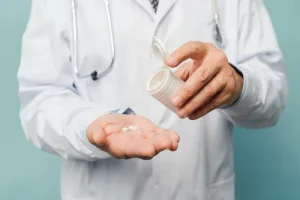What to Tell Your Anesthesiologist Before Surgery > News > Yale Medicine
In the third week, if hypertension or high blood pressure is an issue, you may notice lower blood pressure. You might find yourself at this point contemplating the broader effects of alcohol, such as its effects on your health, your mental well-being, work, personal relationships, and more. Quitting alcohol for good may feel less challenging when approached with a short-term goal, such as abstaining for a short period or a month.
24 After Quitting
Behavioral treatment programs are helpful for people who want to quit drinking. These programs involve working with a team of mental health professionals in a group and individual setting. When someone drinks alcohol for a prolonged period of time and then stops, the body reacts to its absence.
Symptoms and Causes
- Consider writing them down and keeping notes on hand, so you have a physical reminder to look at when you need it to help motivate you to stay the course.
- Ethanol is the primary alcohol that’s ingested by people with alcohol use disorder.
- Your provider can also assess to see if there’s a need for medication to help reduce or stop drinking.
- It’s important to continue to prioritize your sobriety and seek support to maintain your alcohol-free lifestyle.
- Research shows that only a small portion of people with AWS require medical treatment.
- Even cutting back your drinking by a third can lower the number of injuries and sick days.
Drinking alcohol, specifically within 4 hours before you go to bed, may help you fall asleep quicker but ultimately reduce your REM sleep and will potentially wake you up later. Timing your cocktails or swapping out your drink for a mocktail is a great way to ensure you’ll sleep soundly through the night. When we drink alcohol, we can be flooded with calm and sedated feelings.

Third stage: Delirium tremens may begin

Get help right away if you or a loved one has an alcohol-related seizure. If you drink heavily for weeks, months, or years, you may have unwanted physical and mental symptoms when you try to stop. These symptoms, also known as withdrawal, can be mild or serious.
After One Day
- This is exactly what one study, published in the British Medical Journal, did in 2018.
- Contact a Recovery Advocate today to take the first step toward living an alcohol-free life.
- Here are some of the improvements you could see from cutting out alcohol, in the short- and long-term.
If you’re looking to reduce your alcohol intake, consider opting for low-strength alcoholic drinks or set a limit for yourself. A healthcare provider may request daily visits during which they will likely run blood tests and monitor vital signs until symptoms stabilize. Mild withdrawal symptoms often begin within 6 to 12 hours after your last drink.
This process can cause you to wake up and experience trouble getting back to sleep. Recommendations for alcohol intake are usually based on what happens when you stop drinking alcohol the number of standard drinks per day. Chronic alcohol abuse can wreak havoc on your body and brain, increasing your risk of many diseases.
How is alcohol withdrawal diagnosed?
- There are several mild to moderate psychological and physical symptoms you might experience when you stop drinking.
- Prepare yourself with strategies to help you avoid triggers so you can quit alcohol.
- But, she says, it’s not a good idea to stop drinking suddenly before their procedure, because that could mean they go into withdrawal two to three days after surgery.
- Know that your provider will be there to support you, not to judge you.
Quitting drinking not only bolsters your immune system but also becomes a crucial defense against diseases like cancer. The rate at which the liver breaks down or metabolizes alcohol depends on several factors like your genes, age, and weight, how much alcohol you consumed, and what you’ve eaten. Depending on how it’s measured, alcohol can stay in your system for 6-72 hours in most cases.


